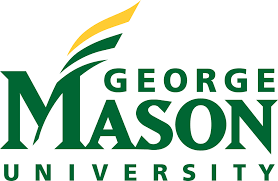George Mason University: Former U.S. intelligence ‘Cold Warriors’ give insights on Russia’s war in Ukraine
America’s overwhelming focus on terrorism following 9/11 gave Vladimir Putin the impression that its leaders weren’t really paying attention, and that he could act with impunity without fear of paying a price.
The “bad, bad miscalculation” by the Russian president likely emboldened him to recently invade Ukraine and has drawn the world closer to World War III than at any time since the Cuban Missile Crisis of 1962.
“He really interpreted that as weakness on the part of the United States,” Leon Panetta, who served as director of Central Intelligence Agency (CIA) from 2009 to 2011, said of Putin. “That’s why he went into Georgia, that’s why he went into Crimea, that’s why he went into Syria, that’s why he went into Libya, and that’s why he did the cyber attack against the United States. Deep down, he did not think that we would respond and that he would pay a price. I think a lot of that contributed to what he’s doing now in Ukraine.”
Panetta’s insights were among the many enlightening takes to come from “The Directors’ View: Russia & Ukraine,” Wednesday evening’s virtual program hosted by the Michael V. Hayden Center for Intelligence, Policy and National Security within the Schar School of Policy and Government at George Mason University. More than 1,300 people from across the United States and overseas tuned in as former Director of National Intelligence James Clapper joined former leaders of the CIA including Panetta, John Brennan, Michael Morell and Gen. Michael V. Hayden (USAF, Ret.), the founder of the Hayden Center and former head of the CIA and National Security Agency, in closely examining the conflict in Ukraine and the challenges it poses to the entire world.
Larry Pfeiffer, the director of the Hayden Center who previously served as CIA chief of staff and the director of the White House Situation Room, served as the moderator for the star-studded panel.
Russia invaded Ukraine in late February, but has encountered far greater resistance than expected, while also dealing with numerous military setbacks and logistical problems.
Putin has defended the invasion as Russia’s natural response to further potential NATO expansion, but the panelists dismissed such a notion.
“Putin just couldn’t stand to have a fledgling, but improving democracy—capitalists and that sort of thing—right next door to Russia and visible to a lot of Russians,” Clapper said.
It’s unlikely, the panelists agreed, that Putin anticipated the galvanizing effect his decision would instead have on the NATO alliance, the strong U.S. response in terms of military aid to Ukraine and the immediate coalescing of the free world to create powerful sanctions that have begun throttling the Russian economy as punishment.
“We want to go together,” Hayden said.
Morell, the former acting director of the CIA and deputy director now serving as a Distinguished Visiting Professor within the Schar School, called Putin’s decision to invade Ukraine “the biggest strategic blunder a major power has made since Hitler invaded the Soviet Union during the Second World War.”
Clapper attributed the “lackluster performance of the vaunted Russian army” thus far to underestimates of Ukrainian military prowess, its reliance on conscripts and poor logistics that require trains to deliver needed supplies.
But the panelists worried what Putin might do when cornered. Russia has previously used chemical weapons against civilians, and Putin has threatened the use of tactical nuclear weapons.
“A cornered, humiliated individual is a very dangerous one,” Brennan said.
The region has quickly become a powder keg, requiring no more than one errant Russian missile or the bad judgement of a lone individual for the conflict to potentially expand into World War III.
“This is a very dangerous time,” Panetta said.

